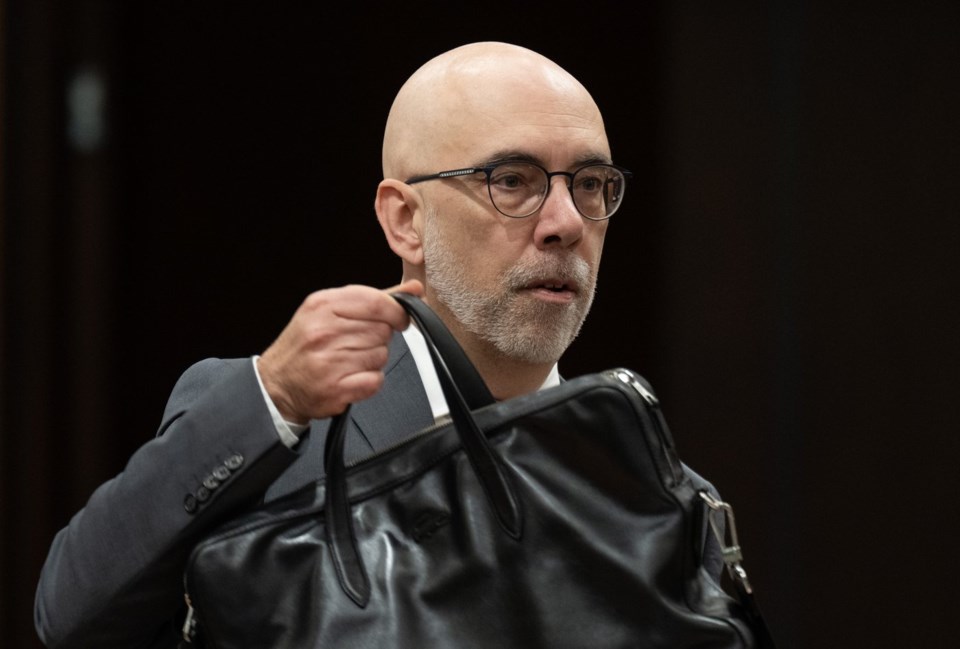OTTAWA — The government's fiscal watchdog says a guaranteed basic income program at the federal level could cut poverty rates in Canada by up to 40 per cent.
In a new report published Wednesday, Parliamentary Budget Officer Yves Giroux said that a Canadian family in the lowest earning group could expect to receive an average of $6,100 in annual disposable income through such a program.
Higher earners could see their income levels drop because of changes in the tax system to implement the basic income support.
The report says that while the cost of sending out cheques to qualifying Canadians could reach $107 billion in 2025, the vast majority of that would be offset by cuts or changes to tax credits aimed at low-income Canadians.
It also would see the basic personal amount lowered, which is the amount of income individuals can claim free of tax.
The PBO said the net cost to the federal government would be between $3.6 billion and $5 billion, depending on the exact model used.
The PBO analysis says the number of hours worked by guaranteed income recipients could drop slightly — up to 1.4 per cent.
Giroux told The Canadian Press that the analysis did not look at knock-on impacts from lowering the poverty rate, such as a possible reduction in pressure on health care or social services.
"When you get in the realm of people's behaviour and exactly what they do when they're provided with additional money, there are positives, but there may be a negative impact that we haven't thought about. So it's very difficult to determine the second-order effects," he said.
The PBO's analysis is based on Ontario's 2017 basic income pilot project, which uses as its foundation the "nuclear family" — any unit consisting of an individual and a possible spouse or common-law partner, plus their children under 18 years old.
Giroux said this definition has flaws, since one dwelling can house multiple nuclear families if older generations or adult children are living there. That can lead to "strange situations" where otherwise wealthy families end up receiving a cheque for basic income, he said.
Wednesday's report also includes an analysis of what basic income would look like based on an "economic family" — a unit that encompasses all relations by blood, marriage or adoption living in the same dwelling.
Under that definition, the cost of administering the program would be cut by more than half to $53 billion in 2025, before taking into account any changes to the tax system or to social supports.
The impact on poverty rates also would be greater, with a 40 per cent reduction for the economic family definition, compared to 34 per cent under the nuclear family model.
That's down from the estimate in a 2021 study, which forecast a 49 per cent drop in poverty rates.
Wednesday's report said that reduced impact is due to the wages of lower-earning Canadians not keeping pace with the surging cost of living.
Under the economic family definition, Manitoba would see the highest reduction in poverty rates — 53 per cent in 2025 — followed by Quebec at just over 50 per cent. British Columbia would see the smallest decrease at 26.2 per cent.
A basic income pilot for older adults on income assistance launched last year in Newfoundland and Labrador has seen only 110 people enrolled — less than a third of those eligible.
Advocates for guaranteed income programs say the punishing nature of traditional welfare programs is likely a barrier, as it often leaves clients reluctant to make changes because they're afraid of losing benefits.
The federal NDP pushed for a guaranteed livable basic income with a private member's bill that failed to pass through the House of Commons last fall. A similar bill was still in limbo in the Senate when Parliament was prorogued in January.
Liberal party leadership candidate Karina Gould pledged last week that she would begin the process of establishing a basic personal income within a year if she wins the top job.
Gould spokesperson Emily Jackson said in an email to The Canadian Press that the candidate would focus on simplifying existing supports, reducing bureaucracy and reforming employment insurance.
"The PBO report makes it clear that a universal basic income could significantly reduce poverty, but getting it right means ensuring it works within Canada’s broader social safety net," Jackson said.
This report by The Canadian Press was first published Feb. 19, 2025.
Craig Lord, The Canadian Press




